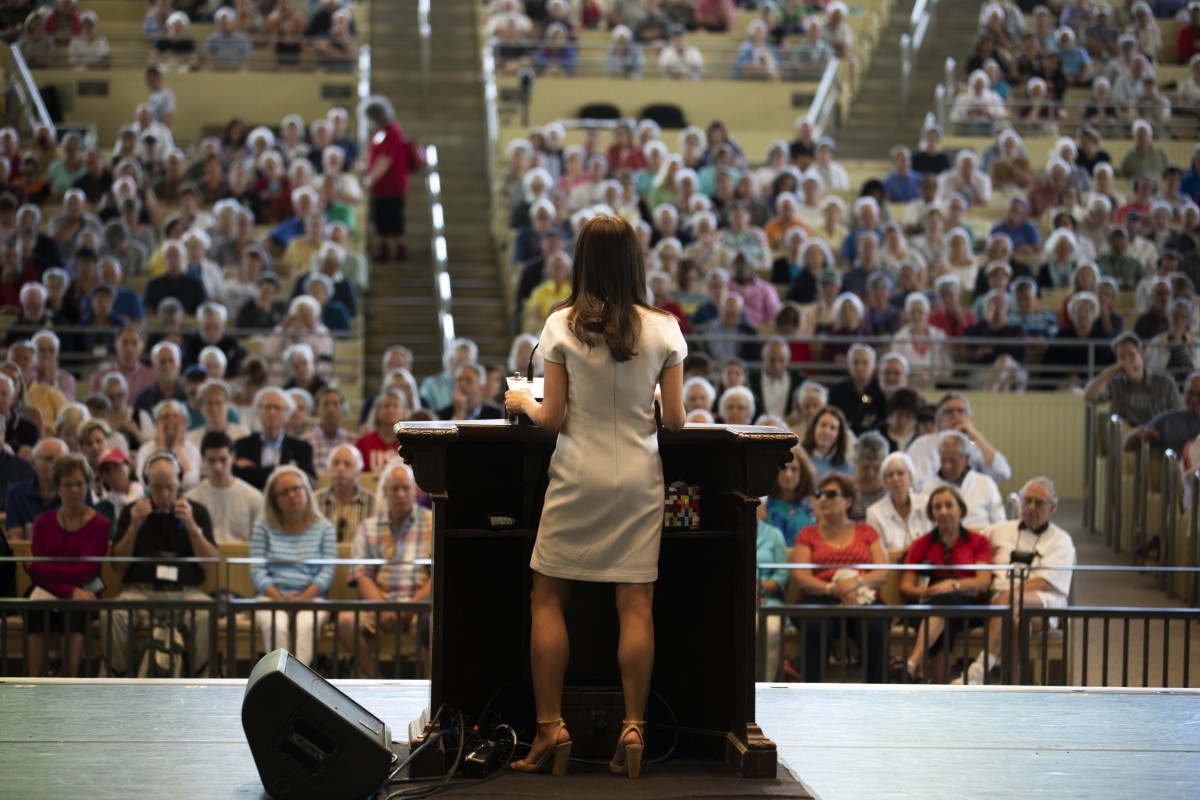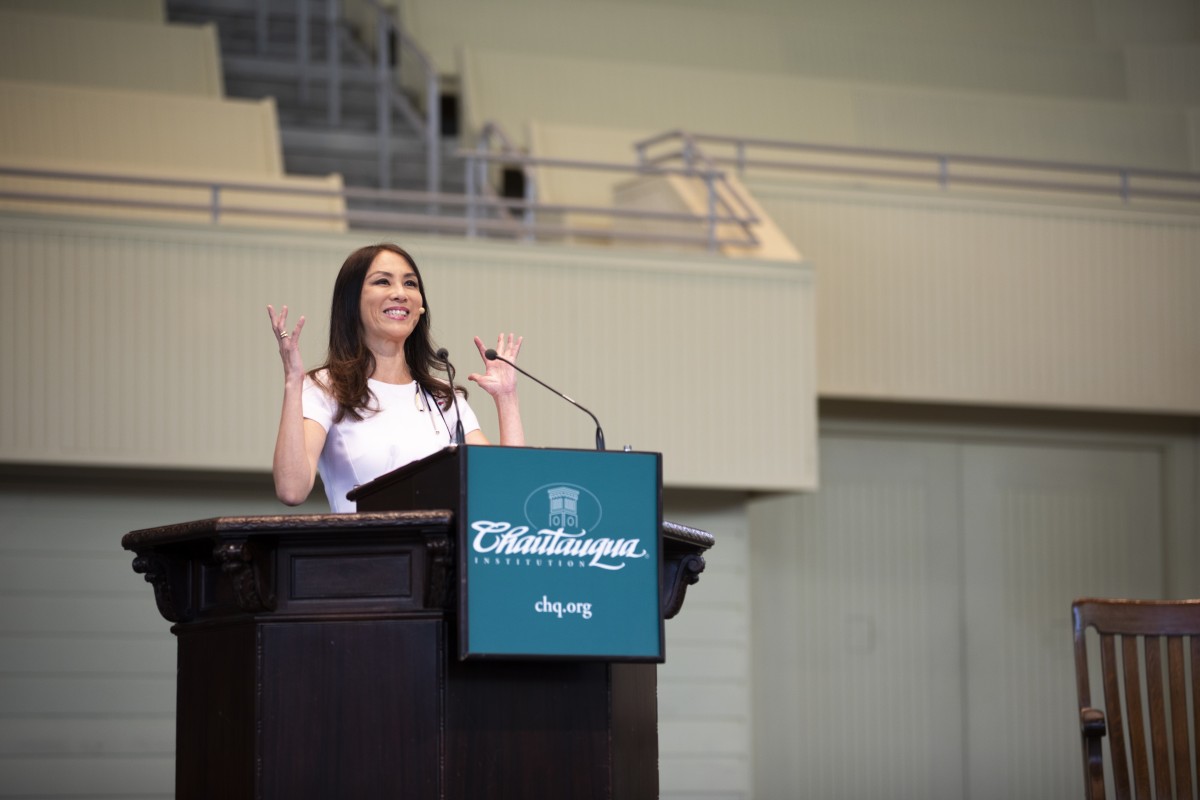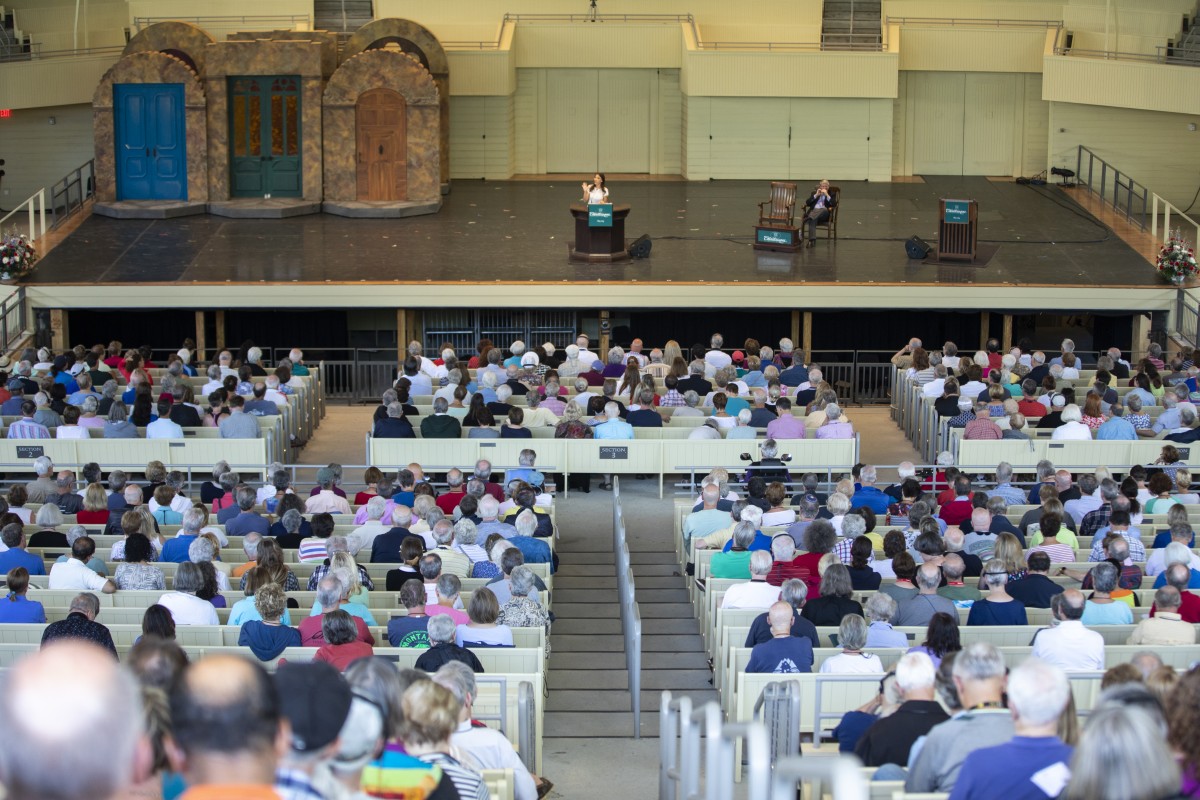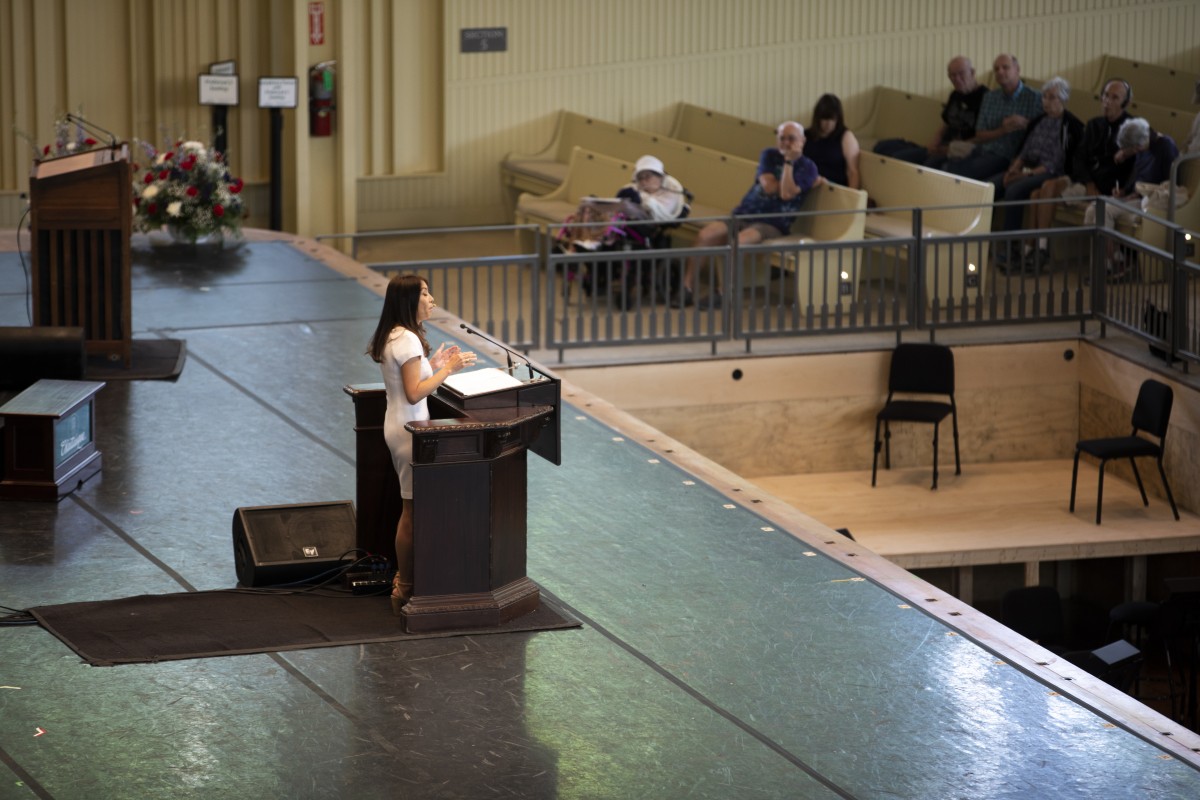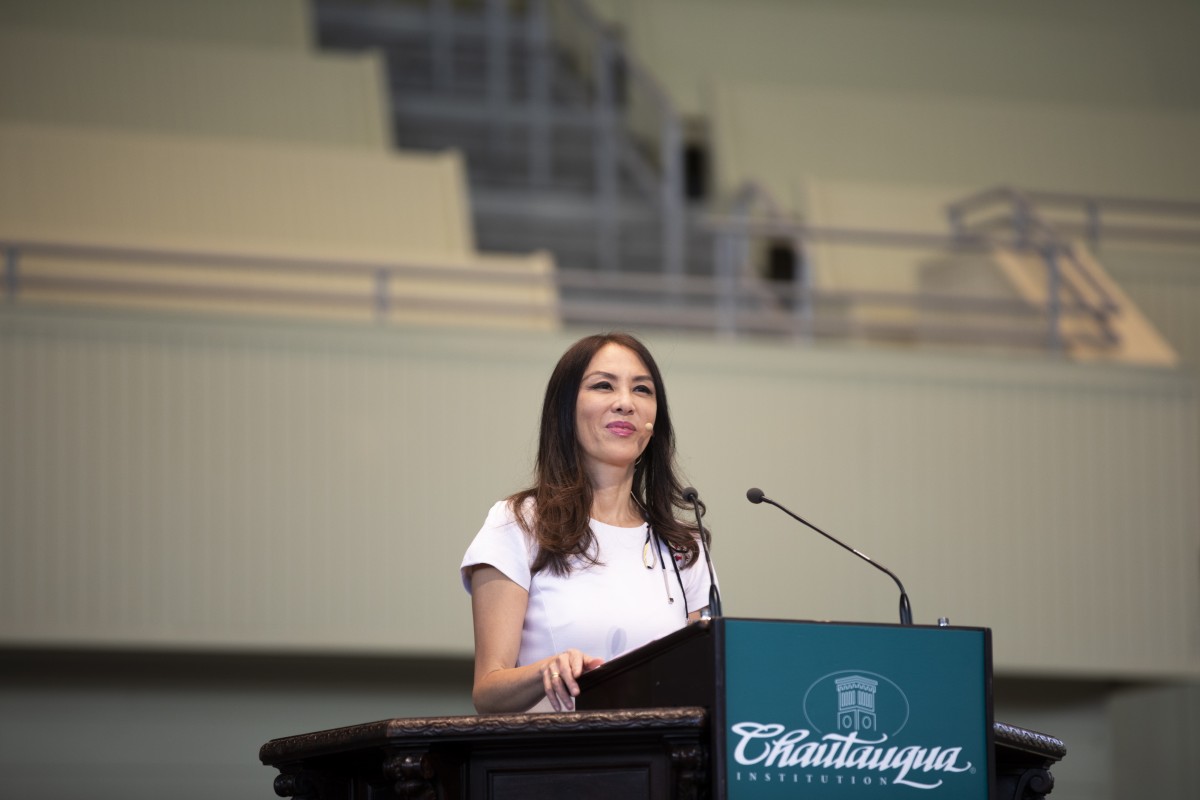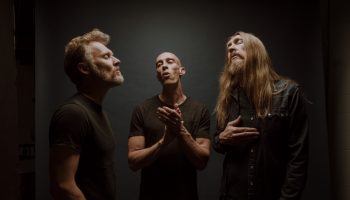A month after the inauguration of President Donald Trump, Amy Chua read a passage from her first book World on Fire: How Exporting Free Market Democracy Breeds Ethnic Hatred and Global Instability to an international business transaction class at Yale Law School.
“In developing countries, under certain conditions, demagogic politicians with no political experience can sweep to power in elections, to the horror of the elites, riding a wave of racially tinged populism,” she read.
She looked up to her class of now-stunned law students.
“Professor Chua, that sounds a lot like you are describing the United States,” one student said over the dead stares of her classmates.
It wasn’t about the U.S. — it was about former Venezuelan President and dictator Hugo Chávez.
That interaction inspired Chua’s fifth book, Political Tribes: Group Instinct and the Fate of Nations, which argues that tribalism is widening the political divide in the U.S. She articulated her point at the 10:45 a.m. morning, Friday, July 6, lecture to close Week Two and the theme “American Identity.”
Chua is an author and professor of law. She was named one of Time magazine’s 100 most influential people in 2011, one of Atlantic Monthly’s Brave Thinkers and one of Foreign Policy’s 2011 Global Thinkers. This was Chua’s second visit to Chautauqua Institution; her first visit she documented thoroughly in her book Battle Hymn of the Tiger Mother, when her daughter auditioned on (and later quit) the violin.
While humans are tribal animals like their primate relatives, they are not just “a little” tribal — they are extremely tribal, according to Chua. This is not only evident in politics, and isn’t necessarily always negative; humans exhibit positive, tribalistic behaviors in families, friend groups and sports.
“We all know that America is in the grips of political tribalism,” Chua said. “We lament and we condemn this tribalism, even as we can’t help voraciously engage in it.”
Tribalism turns problematic when people begin seeing other tribes as inherently “bad,” which Chua said is apparent in the “bitterly divided” state of the nation.
“At this moment, we can’t get anything done, and we can’t even talk to each other,” she said. “We are at a point where many Americans see people (who) voted for the other side not just as the people that they disagree with and want to debate with, but rather as immoral, evil and ‘un-American,’ which is a dangerous state of affairs.”
Chau contributes this behavior to two factors; the first, the massive demographic shift from the waves of immigration since the 1970s.
“For the first time in history, whites are on the verge of losing their majority,” she said.
And it’s not just white people who feel threatened — every group feels threatened. Women feel threatened by Trump’s presidency, men feel threatened by the #MeToo movement and Christians feel threatened by the changing culture, she said.
This is not a generational issue either, according to Chua. Across college campuses, including her own predominantly liberal Yale, “group blindness,” or failing to acknowledge a group’s oppression, is “the ultimate sin.” Chua said it was “transcendent” for white women to wear a headscarf or a kimono when she was a student, but now it would be seen as a micro- aggression.
“If you champion group blindness, you will be seen as erasing the very specific experiences of oppression of minority groups,” she said. “So I see a lot more self-segregation (among) the different student groups.”
This leads to a hardening of party lines, which prevents conversation across said lines.
The second factor Chua addressed — market-dominant minorities — works simultaneously with racial and cultural changes.
Market-dominant minorities is a term Chua coined in her first book, World on Fire. It describes a minority that controls the majority of wealth in a country. For example, Indonesia’s Chinese ethnic minority makes up 3 percent of the population but controls 70 percent of the nation’s wealth. For these countries, the introduction of a democracy can be destabilizing.
“Americans tend to romanticize democracy,” she said. “We think that elections are the answer to everything. And I think we are now getting the taste of our own medicine. … Under certain conditions, especially when inequality traps certain deep, pre-existing ethnic or religious divisions, … democracy does not improve, but actually catalyzes, group conflict.”
Chua predicted this would happen in Iraq. Prior to the U.S. invasion, Iraq had a market- dominant minority — the Sunni. The Sunni comprised 15 percent of Iraq’s population, controlled its markets and victimized the majority Shia and Kurds population.
“What do you think the majority is going to do when you give them the vote?” she said. “I predicted that Iraq’s long-oppressed 60 percent Shia majority would likely use their new-found power as revenge against their former overlords.”
That’s exactly what happened, she said.
“Once in power, the Shia immediately began excluding and persecuting and executing Sunnis,” Chua said. “The Sunni minority instantly realized this democracy thing isn’t working, so they began joining the insurgency: al-Qaida and ISIS.”
This theory is not limited to developing countries. A new market-dominant minority is rising in the U.S., dubbed “coastal elites,” according to Chua.
“Something has changed,” she said. “Class or education has split America’s white majority. Indeed, today there is so little interaction and intermarriage between these two groups of whites in America — between coastal, urban, more educated whites and whites in the heartland, the South, more working- class whites. Today, the division between these two groups of whites is so deep that it practically constitutes what social sciences would call an ethnic divide.”
The “coastal elite” class includes Wall Street executives and Silicon Valley moguls, according to Chua, who share the same “cosmopolitan” lifestyle and progressive ideals.
This new economic superpower, and the changing demographics of the U.S., is causing the riff between tribes, but Chua said she has hope.
“(America’s) strong overarching American identity, coupled with its ability to accommodate individual subgroup cultures, make it a ‘super- group,’ ” she said.
The United States’ unique birthright citizenship policy makes “(it) the model for overcoming tribalism,” but Chua offered some additional suggestions.
Her first suggestion was that Americans need to be more protective of their country’s “uniqueness.” Democrats should be more aware of the harm of the “scorched-earth” approach to American identity.
“There’s a world of difference in saying ‘America has repeatedly and shamefully failed to live up to its open ideals and must do better,’ ” she said. “There’s a huge difference between saying that and saying that ‘the principles that we are supposedly founded on are all fraud, all lies.’ ”
Republicans need to remember that “real patriotism is more than just waving a flag or singing the anthem very loudly,” Chua said.
“The kind of overarching national identity that a super-group requires, capable of binding Americans together, all that balance cannot exist unless every person in the society has reason to love the country, has reason to be proud of the country,” she said.
Americans also have to start viewing one another as human again, “(looking) beyond those echo chambers” and bridging the gap between the coast and the heartland “to start reaching across divides.”
“America is an aspirational nation; our ideals have always far exceeded reality,” Chua said. “The American dream is a promise of freedom and hope. That is also a call on all of us to make true the myths we tell ourselves about what we tell ourselves America has always been.”
After she concluded her lecture with Langston Hughes’ poem “Let America be America Again,” Geof Follansbee, chief executive officer of the Chautauqua Foundation and Chautauqua Institution’s vice president of development, opened the Q-and-A. He asked what is “threatening” majorities.
“I think that there is a real fear that the country is changing and that it won’t be the country that it was,” Chua said. “I am an optimist because we have encountered this before. We’ve seen nativists, anti-immigrant and xenophobia waves happen before. Every other time we have overcome it.”
When asked what her ideal 2020 presidential candidate would be like, she said a candidate with strong leadership skills, who speaks authentically — without being “canned”— and who can reach the other side of the political divide.
To close that divide, Chua said the nation should focus on restoring one of its core values.
“I think that restoring upward mobility in this country should be viewed as a national emergency,” she said.

